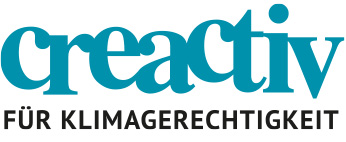In this workshop we give you insights into the psychological and political perspectives on hope which we combine with personal reflection, group work and body-based practices. The workshop invites critical discussion and strategic reflection on the role of emotions in the fight for climate justice.
Even in the unlikely case that our yearly global emissions stop growing, there are only seven years left before the greenhouse gas budget for the 1.5°C target gets exceeded: seven years in which almost unimaginable social and political transformations need to happen. Resignation, fear and exhaustion overwhelm many of us climate justice advocates. So how can we, people committed to restricting the global warming to 1.5°C degrees, still have hope to continue fighting? Can we still keep on communicating that good life is possible for all, knowing the facts? And what are we actually hoping for?
Hope for a better world can bring people together, can motivate them to invest a lot of energy and time for activism; hope can also make people more resilient. However, playing with hope might also be dangerous. It could give us the illusion of change, while neglecting the systemic problems below the surface. Hope can get instrumentalised for profit making and for maintaining of status-quo.
The workshop is designed for people who are familiar with climate justice and who are interested in critically reflecting on the role of hope from personal, political and strategic perspectives.Is hope perhaps only a privilege of those who do not experience the life-threatening effects of climate crisis on a daily basis? Is an overly hopeful attitude maybe even a reason for the previous failures of the climate justice movement? What remains when hope dies? What do we actually need for hope to be politically transformative?
We address these and many more questions in an open-ended exchange that encompasses both the personal and the collective. To explore hope from various points of view we use immersive peer-to-peer learning, inspiration from theoretical approaches as well as movement and body-based practices. As facilitators, we see ourselves less as experts, but rather as space holders that propose different impulses for mutual exchange and hopefully controversial, curious and exciting discussion.
For more information and signign up please click here.


